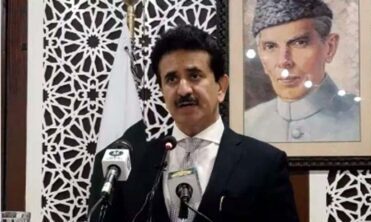Pakistan slams Indian claims on Kashmir

Islamabad: Pakistan on Thursday condemned Indian attempts to justify their illegal rule in held Kashmir.
In response to media queries regarding Indian External Affairs Minister’s tweet on so-called ‘New Jammu Kashmir’, at the completion of two years since India’s illegal and unilateral actions of 5 August 2019, Zahid Hafeez Chaudhri, Spokesperson of the Ministry of Foreign Affairs, said: “In a tweet today, the Indian External Affairs Minister (EAM) has made unsubstantiated and self-serving remarks about the situation in the Indian Illegally Occupied Jammu and Kashmir (IIOJK).”
“We wish to remind India that Jammu and Kashmir remains an internationally recognized dispute and one of the longest outstanding items on the UN Security Council’s agenda,” he added.
As for Indian false propaganda of the so-called Democracy, Development, Good Governance and Empowerment in the Occupied Territory, the international community has seen the most unprecedented military siege, gross and systematic human rights violations, and curbs on all fundamental rights and freedoms of the Kashmiri people in IIOJK, he said.
India has taken a series of illegal steps for further disempowerment and disenfranchisement of the already deprived and oppressed Kashmiri people, including illegal changes in demographic demographic structure of IIOJK and farcical exercise of delimitation of constituencies to turn the Kashmiris into a minority in their own land, Chaudhri said.
As for India’s own ‘unity and integrity’, RSS-BJP regime’s record is replete with instances of most egregious violations of the rights of minorities, Muslims in particular. Voices from inside India, too, are questioning the current regime, and a ‘Minister’ claiming enhanced unity is divorced from reality and nothing more than an amusing display of out-of-place hubris.
“We reiterate that Kashmir never was and never will be a part of India. Ultimately, India will have to give in to the will of the Kashmiris and the commitment of international community as enshrined in numerous UNSC Resolutions.”





